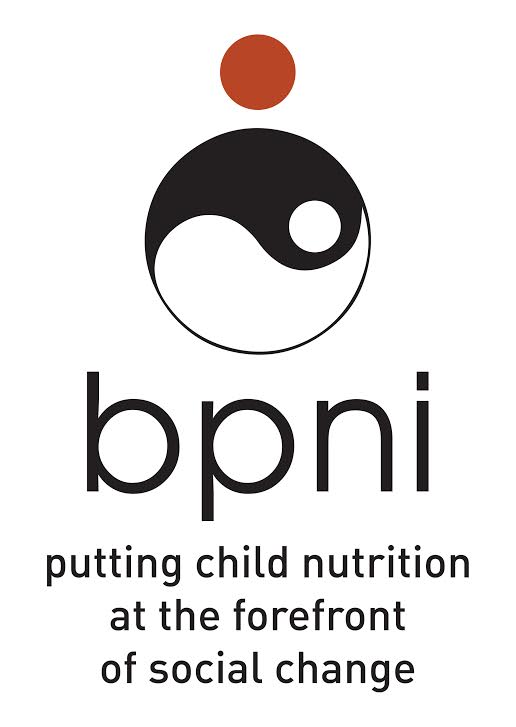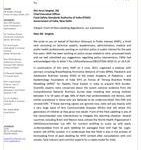
NATIONAL WEBINAR ON
Future of “Strong Nutrition Profile Modelling (NPM)” for Healthy Food System in India to prevent NCD Burden
Dated: 4th June 2021| Time: 5:00 p.m. to 6:40 p.m(IST)
In collaboration:
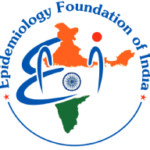
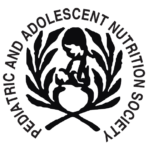
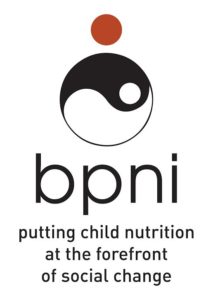

Breastfeeding Promotion Network of India (BPNI), Nutrition Advocacy in Public Interest (NAPi) Pediatric and Adolescent Nutrition Society (PAN) -IAP Nutrition Chapter, and Epidemiology Foundation of India (EFI)
Background
In August 2020, the Breastfeeding Promotion Network of India (BPNI) and Nutrition Advocacy in Public Interest (NAPi) organised a global webinar “What you need to know about ultra-processed foods (UPFs) – the science, policy responses and politics in global context?” in collaboration with the Centre for Epidemiological Studies on Nutrition and Health (NUPENS), University of Sao Paulo, Brazil, and the Institute for Physical Activity and Nutrition, Deakin University, Melbourne, Australia.
The global experts at the Webinar provided updated information on the UPFs, scientific evidence on effect of consuming UPFs on health outcomes and its mechanisms, the NOVA classification of foods, how marketing and conflicts of interests drive UPF consumption, and what are possible policy responses to the UPFs. This update revealed that consumption of UPFs has grown exponentially over the last few decades more so in the higher income nations. The lower income countries have begun to show a rise. Because the UPFs are ultra-processed and contain nutrients like high salt and sugar, it has led to rapid escalation NCDs e.g. obesity, diabetes, cancers etc. making these potentially harmful to health of humans. Scientific research has found strong associations between high UPF intake and negative health impacts; like for example increased overweight and obesity, type -2 diabetes, depression, cardiovascular and cerebrovascular disease and mortality, and all-cause mortality.
The webinar led to the development of a Statement that recommended, inter alia, to Government of India to “Develop a legal framework to regulate the marketing and prohibit promotion of UPFs, especially targeting children, and ensure front of the pack bold labelling taking help of illustrative examples from Chile and Mexico”.
Global and local experts support the simpler nutrient profile model with two categories - food and beverages- to inform the consumers about the health hazards of consuming such foods in an effort to curtail their consumption and thereby prevent NCDs. Nutrient profiling is a scientific method for categorizing food and beverage items according to their nutritional composition. It is developed with the key goals of reducing consumption of sodium, saturated fat and added sugar. The nutrition profile models translate these broad goals into specific food and beverage targets. It helps us to identify and differentiate foods that are unhealthy (high in salt, sugar, and saturated fats) and take appropriate policy actions.
Front of Package Labelling Policy (FOPL) is a strategy to inform consumers in a fast and straightforward way about the excessive content of sugar, sodium and saturated fat to discourage the purchase of unhealthy packaged food. To accomplish this objective, the Nutrient Profile Model is a key component of the policy because it provides the “cut off” to determine when a product has an excessive amount of sugar, salt or saturated fat.
WHO SEARO Nutrient Profile Model helps to classify foods to implement the set of recommendations on the marketing of food and non-alcoholic beverages to children. The SEARO Nutrient Profile is based on the WHO Population Nutrient Intake Goals developed based on global population health data for preventing obesity, diabetes and related non-communicable diseases (NCDs). The model’s fundamental principles are similar to those used by other WHO nutrient profile models for PAHO and AFRO region. The thresholds to define excessive nutrients, including sodium, sugars and saturated fats, are the same in all three regions.
In general, in the SEARO model considering 2000 Kcal energy consumption/per person/per day, the following thresholds are recommended:
- Sodium: 1 mg sodium: 1 kcal energy or lower
- Total/Free Sugar: 10% of the total energy for foods and 5% for sugar-sweetened beverages.
- Total fat: 30% of total energy
- Saturated fats: 10% of total energy
In continuity of BPNI-NAPi’s earlier work on UPFs and considering that it requires urgent policy interventions to reduce the consumption of unhealthy food products, BPNI and NAPi have decided to work on a project “Protecting Peoples Health through strong warning labels up front on the pre-packaged food products”, in collaboration with public health and nutrition professional organisations including Pediatric and Adolescent Nutrition Society (IAP Nutrition Chapter), and Epidemiology Foundation of India, As a part of this work, a Webinar is being organised entitled: Future of “Strong Nutrition Profile Modelling (NPM)” for Healthy Food System in India to prevent NCD Burden with the following objectives.
Objectives
- To create awareness around Nutrition Profile Model for India to ensure a healthy food system (packaged or non-packaged) for India, based on global evidence and experiences.
- To discuss the status and build a consensus on the way forward.
CHAIRPERSON
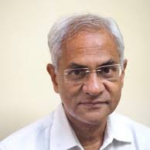
Mr. Keshav Desiraju
Former Secretary
Health and Family Welfare,
Govt of India
SPEAKERS

Professor Carlos A. Monteiro, MD, PhD
Department of Nutrition, School of Public Health, University of Sao Paulo, Brazil
Carlos Monteiro, MD, PhD, is a Professor of Nutrition and Public Health at the School of Public Health, University of Sao Paulo, Brazil, where he heads the Center for Epidemiological Studies in Health and Nutrition. His research lines include new methods in population nutritional and food intake assessment, epidemiology of all forms of malnutrition, dietary determinants of non-communicable diseases, and food processing and human health. On these subjects, he has published more than 250 journal articles that had more than 15,000 citations in the Web of Science (H index: 62). In 2018, 2019 and 2020, he was included in the Clarivate Analytics Global Highly Cited Researchers List. Since 2008, he is member of the Brazilian Academy of Sciences. He has served on numerous national and international nutrition expert panels and committees and, since 2010, he is a member of the WHO Nutrition Expert Advisory Group. In 2010, he received the Pan-American Health Organization Abraham Horwitz Award for Excellence in Leadership in Inter-American Health.
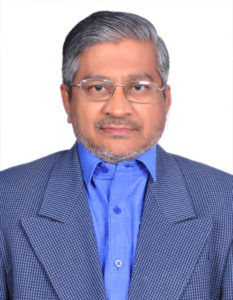
Dr. K. Madhavan Nair,
Retired Scientist F, National Institute of Nutrition, Hyderabad
K. Madhavan Nair has a PhD in biochemistry from Osmania University, Hyderabad. He is currently the Chairperson of Scientific Panel on Labelling & Claims/Advertisements, FSSAI, MoH&FW, Government of India and member of a large number of National and International expert committees on Health, Nutrition and Food Safety. He was formerly the Head of Micronutrient Research at the National Institute of Nutrition, ICMR and has worked for more than 35 years. He is trained at the International Center for Control of Nutritional Anemia in the methodologies of assessment of nutritional anemia. He has received the Public Health Service International Research Fellow Award in1988, ICMR’s prestigious B.G.R.C. Silver Jubilee Oration Award for the year 1996 for the contributions in the field of Nutritional Hematology, Dr (Smt.) Mrunalini Devi Puar Memorial Oration, Foods and Nutrition Alumni Association, The MS University of Baroda in 2018 and Dr, S G Srikantia Memorial Lecture Award, Nutrition Society of India in 2019. He is a Fellow of three National science academies, namely FNAMS, FNAAS and Fellow of the Telangana Academy of Sciences. His expertise includes basic, applied and population based intervention programs in micronutrients. He has made significant contributions to understanding iron-induced free radical damage and its prevention by antioxidant supplementation, bioavailability, food fortification and food-based strategies to control micronutrient deficiencies. He coordinated the Expert Group of the ICMR to revise the Nutrient Requirements and RDA for Indians in 2010 and in developing the National standards for staple food fortification. He has published over 150 peer-reviewed papers and book chapters and supervised several PhD students.

Prof. Piyush Gupta MD, FIAP, FNNF, FAMS
President, Indian Academy of Pediatrics
President, Indian Academy of Pediatrics; and Former Chairperson, Pediatric and Adolescent Nutrition Society, IAP. Published 300 papers and edited/authored 30 books. Editor-in-Chief of ‘Indian Pediatrics,’ (2008-2013), Member, World Association of Medical Editors, Awarded by the Royal College of Paediatrics, UK; American Academy of Pediatrics; IAP, NNF, and National Academy of Medical Sciences, India. Awarded the National Teacher of Excellence Award in Medical Education by Vice-President India, Major initiatives - Workshops on thesis and scientific paper writing. Thrust areas - Nutrition, Child survival, and Medical Education.
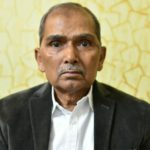
Dr. A K Rawat
President, Pediatric and Adolescent Nutrition (PAN) Society
Chairperson, Pediatric and Adolescent Nutrition Society, Formerly Professor & Head Pediatrics and Dean Govt, Medical College, Sagar MP ,Presently, National Technical Expert for National Centre of Excellence for Management of Severe Acute Malnutrition, CoE-KSCH, New Delhi
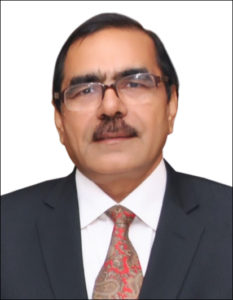
Prof. Umesh Kapil,
President Epidemiology Foundation of India (EFI)
Dr. Umesh Kapil, MD, DNB is presently working as a Professor and Head Department of Epidemiology ( since 2019 ) at the National premier “Institute of Liver and Biliary Sciences” New Delhi ,India. His areas of Expertise are Community Medicine. Dr. Kapil is an Alumni of AIIMS, New Delhi . He superannuated as Professor and Head , Department of Gastroenterology and Human Nutrition, AIIMS , New Delhi. With more than four decades of experience in research and teaching, He had delivered presentations and orations in various national and international fora, Dr kapil has published widely with more than 315 publications to his credit.( Total Citations 2391 and h-Index 22). As an expert in the arena of Community Health & Epidemiology he is actively involved in capacity building, designing strategies & policies for various state governments and Government of India ministries of Health and Family Welfare, Human Resource Development and Industry, National Institute of Nutrition, Indian Council of Medical Research, Planning Commission, universities, professional organizations & international agencies like UNICEF, WHO and FAO. In view of his scientific contribution , he has been awarded with following awards, honors by Government of India and fellowships of National Professional Scientific Organizations

Prof. Harshpal Singh Sachdev, MD, FIAP, FAMS, FRCPCH
Senior Consultant, Sitaram Bhartia Institute of Science and Research
Professor Harshpal Singh Sachdev is a Senior Consultant in Pediatrics and Clinical Epidemiology at Sitaram Bhartia Institute of Science and Research, New Delhi; Honorary Senior Research Fellow, UCL Institute for Global Health, University College London, UK; Adjunct Professor, St. John’s Research Institute, Bangalore; and a practicing paediatrician. He also served as Professor, Department of Pediatrics, Maulana Azad Medical College (until February 2006); National President, Indian Academy of Pediatrics; Secretary, Nutrition Society of India; Editor-in-Chief of Indian Pediatrics; and Visiting Professor, MRC Lifecourse Epidemiology Unit, Southampton. Professor Sachdev’s current research interest are developmental origins of adult cardio-metabolic disease, nutrition in children and mothers in low- and middle-income countries, childhood obesity, and systematic reviews on nutrition and health. Professor Sachdev is credited with 334 indexed publications (H-index 62; i10-index 176), editing 16 books and contributing to 39 reports. He was recently listed in the top 0.6% of global researchers in the field of Pediatrics according to a scoring system published by Stanford University authors. He has published several systematic reviews including Cochrane reviews on nutrition and child health and has been an editor for the Cochrane Developmental, Psychosocial and Learning Problems Group since 2008. Honours received include fellowships from three prestigious academies. He is a National Research Awards recipient. Prof. Sachdev has provided honorary services in various advisory capacities, including as Chairperson, to the Government of India (Department of Biotechnology, Indian Council of Medical Research, and Food safety and Standards Authority of India), and different national and international organizations, including WHO, World Bank, and UNICEF. Professor Sachdev is a serving member of WHO Strategic and Technical Advisory Group of Experts (STAGE) on Maternal, Newborn, Child, Adolescent Health and Nutrition (MNCAHN) and several guideline development groups including the one on updating FAO/WHO zinc, vitamin D and calcium requirements in children aged 0-36 months.
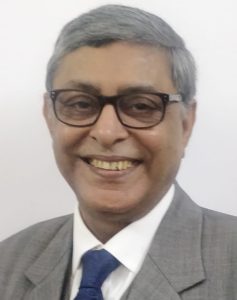
Dr. Arun Gupta
Convenor, NAPi/BPNI
Dr. Arun Gupta is a pediatrician, a Fellow of Indian Academy of Pediatrics who chose to give up his lucrative private practice and founded the ‘Breastfeeding Promotion Network of India’ (BPNI) in 1991. He focuses on policy analysis regarding support to breastfeeding women, child nutrition and conflicts of interest. He writes nationally and internationally. He is the creator of IBFAN’s World Breastfeeding Trends Initiative (WBTi). He is the convener of the “Alliance Against Conflict of Interest” (AACI) and “Nutrition Advocacy in Public Interest” (NAPI) in India for policy level inputs.
Video recording
